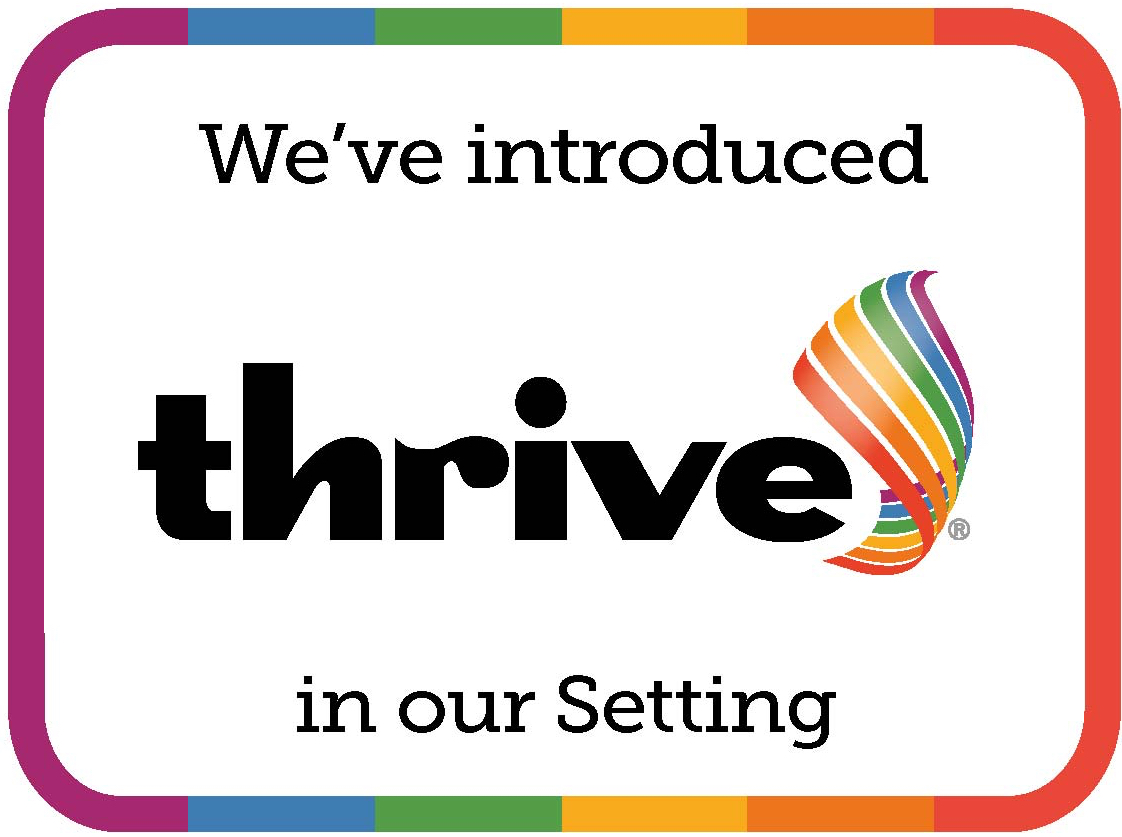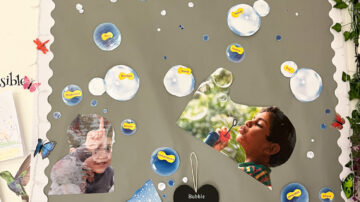Thrive


Across Tudor Grange Academy Trust, we are delighted to be embedding the Thrive Approach into our schools to support the emotional well-being of our pupils.
The Thrive Approach enables our staff to identify specific ways of working with pupils and helps them to respond to their differing needs, enabling them to contribute to developing a young person’s secure emotional base.
A secure emotional base is the necessary foundation for healthy development and enables access to learning so that children and young people can maximise their potential.
The Thrive Approach has four guiding principles:
- Every child or young person is a unique person, constantly developing and learning in different ways and at different rates, each with their own abilities, talents, and potential to be fulfilled
- Healthy development, emotional wellbeing and learning rely upon, and are promoted through, positive relationships
- People flourish when they are confident, self-assured, capable, and resilient
- Children and young people thrive in enabling environments where their individual development, learning experiences and needs are understood, responded to, and supported through strong partnerships with parents or carers.
The Thrive Approach is appropriate for all children and young people and enables adults to understand and meet children’s social and emotional needs at each stage of their development. Sometimes, because of challenges in the lives of children or their families, special educational needs or trauma, children and young people may be left with gaps or interruptions in their emotional development. The Thrive Approach enables adults to help to repair these gaps retrospectively, supporting optimal emotional health and wellbeing.
The Thrive Approach acknowledges that all behaviour is a form of communication. It highlights to us that behind every behaviour is a feeling and behind every feeling is a need. If a child or young person is behaving in a distressed, dysregulated, disruptive, or defensive manner, the adults around them recognise that this is their way of communicating that they have a need that is not being met.
As supportive adults in school, we focus on meeting the need of the child or young person rather than concentrating on the behaviour. This helps us to address the behaviour in a meaningful and sensitive way.
Who is our Thrive practitioner?

Mrs Knibbs
Primary Thrive Practitioner
How is Thrive used by staff across the school?
All staff at Tudor Grange Samworth Academy regularly undertake Thrive training as part of the school CPD program to ensure staff are upskilled. Staff understand the developmental level of each pupil within their class and focus on the appropriate stage of Thrive to meet the pupil’s developmental stage which may not be neurotypical.
The Thrive Approach is appropriate for all children and young people and enables adults to understand and meet children’s social and emotional needs at each stage of their development. Sometimes, because of challenges in the lives of children or their families, special educational needs or trauma, children and young people may be left with gaps or interruptions in their emotional development. The Thrive Approach enables adults to help to repair these gaps retrospectively, supporting optimal emotional health and wellbeing.
The Thrive Approach acknowledges that all behaviour is a form of communication. It highlights to us that behind every behaviour is a feeling and behind every feeling is a need. If a child or young person is behaving in a distressed, dysregulated, disruptive, or defensive manner, the adults around them recognise that this is their way of communicating that they have a need that is not being met.
As supportive adults in school, we focus on meeting the need of the child or young person rather than concentrating on the behaviour. This helps us to address the behaviour in a meaningful and sensitive way.
Teachers and Teaching Assistants use the Vital Relational Functions (VRF’s) to attune to pupil’s behaviours and dysregulation. This approach enables pupils to feel secure, valued, develops a positive bond and trust. It enables pupils to know that their feelings and emotions are valid and resulting behaviours can be managed more effectively with the support of an adult or the class team.
Termly, each class completes a class Thrive profile based upon the knowledge of the pupils in collaboration with the class team and family and any other relevant professionals. The profile enables the class team to identify the needs and next steps of learning for pupils. The class action plan created for the class will form FOCI for pupils. Each class will complete Thrive focused activities each half term.
Any pupils who present with a greater need for support due to their behaviour or social and emotional needs will be individually assessed by our Thrive practictioner to create an individual Thrive action plan. They will then receive additional support based on this.
Our Thrive Rooms
Our Thrive practitioner has set up a welcoming and safe space for pupils to go when they have their Thrive sessions. The environment is calming and focused on providing opportunities for the children to build relationships. All activities are interactive and engaging and tailored with the particular needs of each child in mind. We have a smaller space for individual thrive sessions and a larger room for our group sessions.










